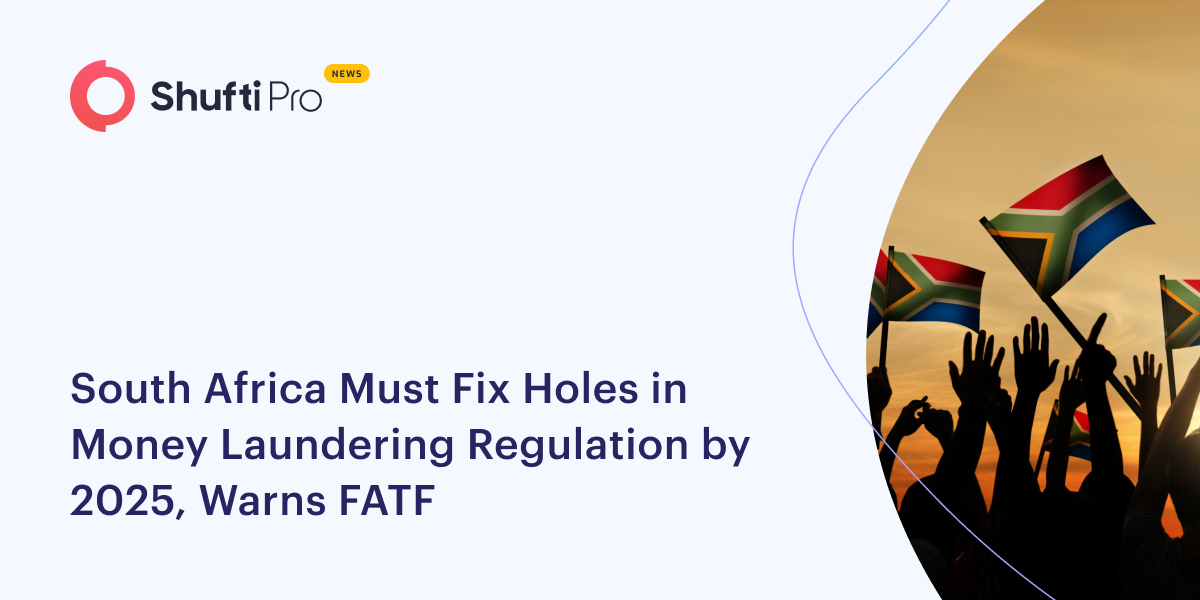South Africa Must Fix Holes in Money Laundering Regulation by 2025, Warns FATF

South Africa needs to improve its Anti-Money Laundering and Counter-Terrorist Financing regulations by 2025 after being greylisted by FATF on 24 Feb 2023.
FATF greylisted South Africa on Friday, and the members of the international community are warned that conducting business with any “impugned” nation could facilitate money laundering and terrorism financing.
According to Webber Wentzel, the African law firm, South Africa has significant implications for economic growth and global competitiveness.
The IMF (International Monetary Fund) has published a report stating that greylisting significantly decreases capital inflows. For nations vulnerable, this might lead to a balance of payment crisis.
“This is because greylisting entails that all transactions of South African companies and individuals will be seen as high-risk transactions, resulting in complicated compliance and administrative duties, and likely disincentivizing investment into and trade with South Africa,” the Webber Wentzel team said on Friday.
The law firm also mentioned the possible economic penalties being imposed on the country by FATF member states and other international authorities. The cost of global finance flow to and from SA will become higher with much stricter compliance obligations.
“Some international financial institutions have policies that prevent them from doing business with greylisted countries or at least, limit the scope of business that can be conducted. Such restrictions will further impede business and foreign investment,” the Webber Wentzel team notes. They also expect trading revenue to decline.
The country’s insurance industry will be impacted particularly. The national treasury seems relatively unmoved about the impact. In response to the greylisting of SA, it stated that there are no items listed on an action plan that relate directly to preventive measures of the financial sector.
“This reflects the significant progress in the application of a risk-based approach to the supervision of banks and insurers. The National Treasury, therefore, expects that the increased monitoring will have limited impact on financial stability and costs of doing business with South Africa.”
FATF has mentioned various areas that require attention including improving South Africa’s risk-based supervision of identified risks. The Webber Wentzel team added that “SA is also required to improve their investigation and prosecution of serious complex money laundering and terrorist financing activities.”
Suggested Read:
CAMBODIA EXITS FATF ANTI-MONEY LAUNDERING GREY LIST, PHILIPPINES REMAIN

 Explore Now
Explore Now













